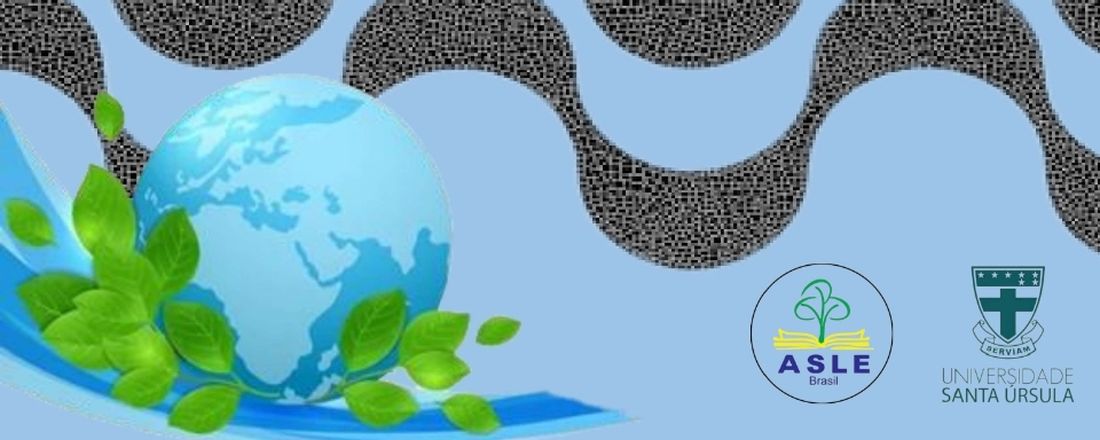IV Conferência Bienal da ASLE-Brasil
"Narrativas do Antropoceno e Justiça Ambiental"
A maioria dos cientistas concorda que a influência coletiva dos seres humanos sobre o planeta foi menor antes do nascer da Revolução Industrial, durante a metade do século XVIII. Entretanto, incontáveis avanços tecnológicos ocorreram desde então, provocando mudanças sistemáticas que afetaram inúmeras dimensões do planeta em escala geológica. Anthropos conseguiu essas proezas em três etapas, que podem ser documentadas por meio de dados quantitativos de cunho global, a saber: o crescimento populacional, o crescimento econômico e a expansão das trocas internacionais de matérias primas e produtos. Porém, uma revolução (comparada somente às revoluções Copernicana ou Darwinista) ocorreu recentemente. Os cientistas que trabalham com os sistemas terrestres tornaram Anthropos finalmente consciente do perigo. E, somente se os políticos agirem, respaldados nos dados das pesquisas científicas, eles poderão levar a humanidade a um futuro sustentável. Por que as narrativas do Antropoceno interessam a Terra? Até que ponto elas podem nos fazer refletir sobre os limites e o esgotamento da natureza frente à irresponsabilidade humana? Essas são questões que fazem parte das discussões de nosso VI Congresso Internacional de Literatura e Ecocrítica, que se realizará entre os dias 25,26 e 27 de setembro de 2023, nas dependências da Universidade Santa Úrsula, Rio de Janeiro, Brasil. Como um evento interdisciplinar, ele contará com a presença tanto das áreas das humanidades ambientais, tais como Jornalismo, Letras, Antropologia, Direito Ambiental, Psicologia, Sociologia e História, quanto, especialmente, Ecologia, Biologia, Geografia, Engenharia Ambiental, entre outras.
EIXOS TEMÁTICOS
1. Impactos ambientais, modernidade, modernidade reflexiva e meio ambiente
2. O Conto, a Poesia, o Teatro e o Romance do Antropoceno
3. A Era dos Impérios e o Conhecimento Ambiental: abordagens críticas
4. Povos Indígenas, ambiente degradado e resistência
5. A exploração racional do planeta, o imperialismo sustentável: resposta dos povos periféricos
6. Agroecologia e alimentação sustentável
7. Segurança alimentar
8. Preservação das espécies e conservação das florestas
9. Água potável e saneamento básico
*
"Narratives of the Anthropocene and Environmental Justice"
Most of the scientists agree that human beings' collective influence on the planet was least before the rise of the Industrial Revolution, during the mid-18th century. However, countless technological advances have occurred since then, causing systematic changes that have affected numerous dimensions of the planet on a geological scale. Anthropos achieved these feats in three stages, which can be documented through quantitative data of a global nature, namely: population growth, economic growth and the expansion of international exchanges of raw materials and products. However, a revolution (compared only to the Copernican or Darwinist
revolutions) has recently taken place. Scientists working with Earth systems have finally made Anthropos aware of the danger. And only if politicians act, supported by scientific research data, can they lead humanity to a sustainable future.
Why do Anthropocene narratives interest to the Earth? To what extent can they make us reflect on the limits and exhaustion of nature in the face of human irresponsibility? These are questions that are part of the discussions of our VI International Congress of Literature and the Environment, which will take place between the 25st, 26nd and 27rd of september 2023, at premises of Universidade Santa Úrsula,
Rio de Janeiro, Brazil. As an interdisciplinary event, it will be attended by the areas of environmental humanities, such as Journalism, Literature, Linguistics, Anthropology, Environmental Law, Psychology, Sociology and History, as well as, especially, Ecology, Biology, Geography, Environmental Engineering, among others.
THEMATIC AXIS
1. Environmental Impacts, Modernity, Reflective Modernity and the Environment
2. Short Stories, Poetry, Theater and the Romance of the Anthropocene
3. The Age of Empires and Environmental Knowledge, critical approaches
4. Indigenous Peoples, Degraded Environment and Resistance
5. The Rational Exploration of the Planet, Sustainable Imperialism and Peripheral Peoples Response
6. Agroecology and sustainable food
7. Food safety
8. Preservation of species and Forest´s Conservations
9. Drinking water and basic sanitation
25 de setembro de 2023 a 27 de setembro de 2023.
Universidade Santa Úrsula - Rua Fernando Ferrari, 75, Botafogo, Rio de Janeiro - Rio de Janeiro
Com transmissão online
COMISSÃO ORGANIZADORA:
Profa. Dra. Zelia Bora - ASLE_Brasil, UFPB
Profa. Dra. Maria Geralda de Miranda -
USU, UNISUAM, ICTIM
Profa. Dra. Marcia Cavalcanti - USU, TRF2
Prof. Dr. Marcio Matiassi Cantarin - UTFPR
Prof. Dr. Paulo Henrique Chaves Cordeiro
- USU, UFRJ
COMISSÃO CIENTÍFICA
Prof. Dr. Robson
Teles Gomes - UNICAP
Prof. Dr. Adriano
Rosa - USU
Profa. Dra. Katia
E. Santos Avelar - CNPq/FIOCRUZ/UNISUAM
Prof. Dr.
Animesh Roy - Rabindra
Bharati University
Profa. Dra. Ivana Alencar Peixoto Lianza da Franca -IFPB
Profa. Dra. Maria Alice Chaves N. Costa - UFF-RJ



